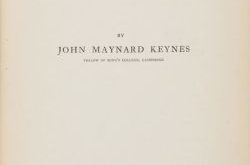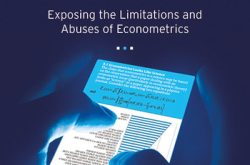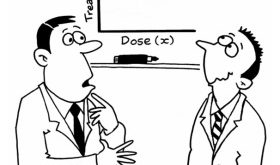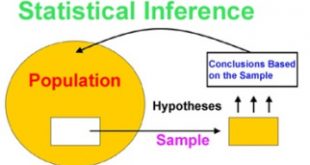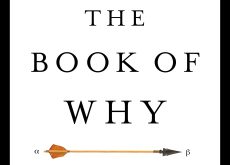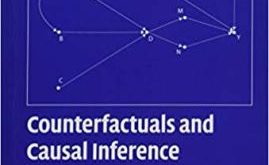The validity of statistical induction In my judgment, the practical usefulness of those modes of inference, here termed Universal and Statistical Induction, on the validity of which the boasted knowledge of modern science depends, can only exist—and I do not now pause to inquire again whether such an argument must be circular—if the universe of phenomena does in fact present those peculiar characteristics of atomism and limited variety which appear more and...
Read More »Two must-read statistics books
Two must-read statistics books Mathematical statistician David Freedman‘s Statistical Models and Causal Inference (Cambridge University Press, 2010) and Statistical Models: Theory and Practice (Cambridge University Press, 2009) are marvellous books. They ought to be mandatory reading for every serious social scientist — including economists and econometricians — who doesn’t want to succumb to ad hoc assumptions and unsupported statistical conclusions! How...
Read More »Econometrics — a con art with no relevance whatsoever to real world economics
Econometrics — a con art with no relevance whatsoever to real world economics Econometrics looks “sciency”. Once in a seminar presentation I displayed two equations, one taken from Econometrica and the other from the Journal of Theoretical and Experimental Physics and challenged the audience to tell me which is which. No one volunteered to tell me which is which, including at least one hard-core econometrician. Economics is a social science where the...
Read More »Trösklar och statistisk signifikans
Trösklar och statistisk signifikans I en artikel på Ekonomistas argumenterar nationalekonomen Robert Östling för att lösningen på den uppmärksammade ‘replikationskrisen’ är att ändra på tröskeln för vad som ska betraktas som ‘statistiskt signifikant’ från 5% till 0,5%. Även om detta i sig är vällovligt är det dock ingen lösning. Det räcker inte med att ändra godtyckliga nivåer för vad som ska anses vara ‘statistiskt signifikant’ eller ej. Det är inte där...
Read More »The difference between statistical and causal assumptions
The difference between statistical and causal assumptions There are three fundamental differences between statistical and causal assumptions. First, statistical assumptions, even untested, are testable in principle, given sufficiently large sample and sufficiently fine measurements. Causal assumptions, in contrast, cannot be verified even in principle, unless one resorts to experimental control. This difference is especially accentuated in Bayesian...
Read More »Why statistics does not give us causality
Why statistics does not give us causality If contributions made by statisticians to the understanding of causation are to be taken over with advantage in any specific field of inquiry, then what is crucial is that the right relationship should exist between statistical and subject-matter concerns … Where the ultimate aim of research is not prediction per se but rather causal explanation, an idea of causation that is expressed in terms of predictive power —...
Read More »Why attractive people you date tend to be jerks
Why attractive people you date tend to be jerks Have you ever noticed that, among the people you date, the attractive ones tend to be jerks? Instead of constructing elaborate psychosocial theories, consider a simpler explanation. Your choice of people to date depends on two factors, attractiveness and personality. You’ll take a chance on dating a mean attractive person or a nice unattractive person, and certainly a nice attractive person, but not a mean...
Read More »Substantive relevance — not ‘clever’ design — is what matters most in science
Substantive relevance — not ‘clever’ design — is what matters most in science [embedded content] If anything, Snow’s path-breaking research underlines how important it is not to equate science with statistical calculation. And that the value of ‘as-if’ random interventions and experiments ultimately depend on the degree to which they if shed light on substantive and interesting scientific questions. All science entail human judgement, and using statistical...
Read More »Causal inference and the rhetoric of imaginary populations (wonkish)
Causal inference and the rhetoric of imaginary populations (wonkish) The most expedient population and data generation model to adopt is one in which the population is regarded as a realization of an infinite super population. This setup is the standard perspective in mathematical statistics, in which random variables are assumed to exist with fixed moments for an uncountable and unspecified universe of events … This perspective is tantamount to assuming a...
Read More »How to think about statistics
How to think about statistics [embedded content] If anything, Gelman’s talk underlines how important it is not to equate science with statistical calculation. All science entail human judgement, and using statistical models doesn’t relieve us of that necessity. Working with misspecified models, the scientific value of statistics is actually zero — even though you’re making valid statistical inferences! Statistical models are no substitutes for doing real...
Read More » Heterodox
Heterodox

